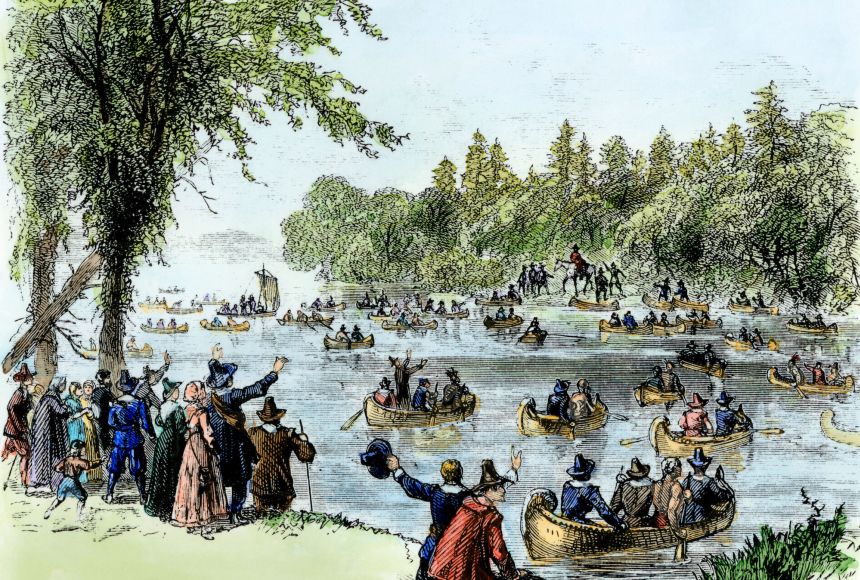ENCYCLOPEDIC ENTRY
ENCYCLOPEDIC ENTRY
Colony
Colony
A colony is a country or area under the full or partial political control of another country, typically a distant one, and occupied by settlers from that country.
Grades
5 - 8
Subjects
Social Studies, World History
Image
Rhode Island Charter
All 13 of the British North American colonies were granted a contract, called a charter, from the King of England allowing its people to stay there. This image depicts Roger Williams, who founded the Rhode Island colony, being welcomed as he brought the royal charter to establish the colony.
Painting from North Wind Picture Archives

Media Credits
The audio, illustrations, photos, and videos are credited beneath the media asset, except for promotional images, which generally link to another page that contains the media credit. The Rights Holder for media is the person or group credited.
Director
Author
Production Managers
Program Specialists
Producer
Intern
other
Last Updated
September 20, 2024
For information on user permissions, please read our Terms of Service. If you have questions about how to cite anything on our website in your project or classroom presentation, please contact your teacher. They will best know the preferred format. When you reach out to them, you will need the page title, URL, and the date you accessed the resource.
Media
If a media asset is downloadable, a download button appears in the corner of the media viewer. If no button appears, you cannot download or save the media.
Text
Text on this page is printable and can be used according to our Terms of Service.
Interactives
Any interactives on this page can only be played while you are visiting our website. You cannot download interactives.